#read along
Text
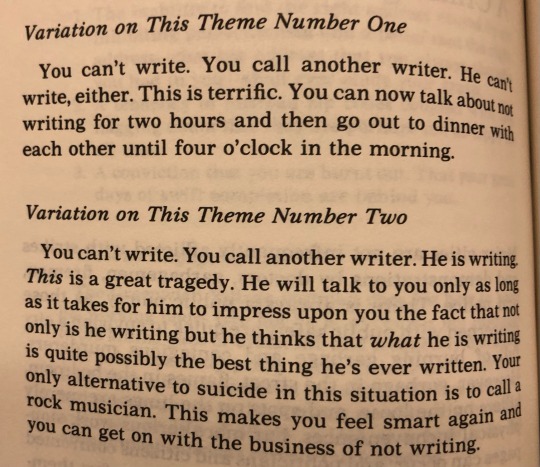
Fran Lebowitz on writing
12K notes
·
View notes
Text
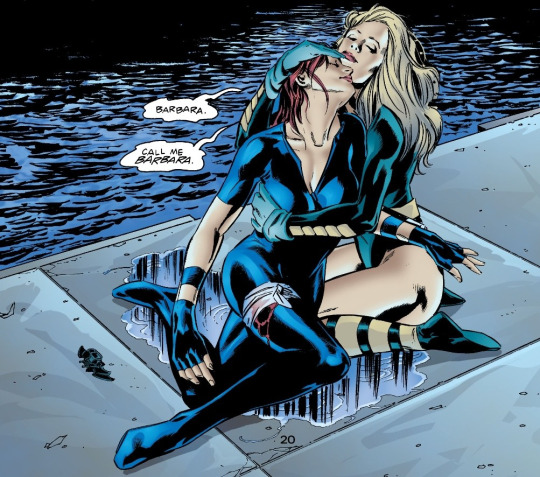

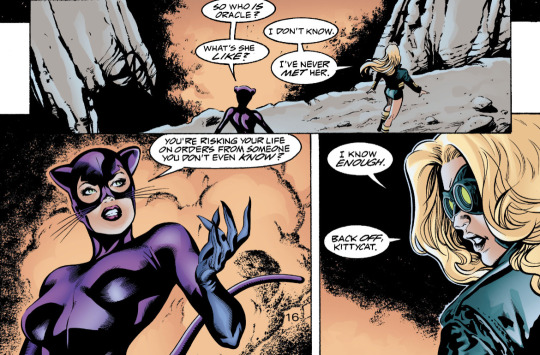
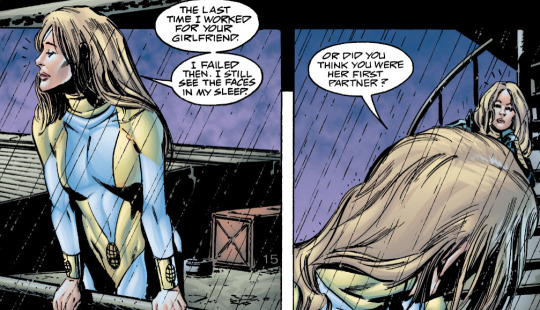

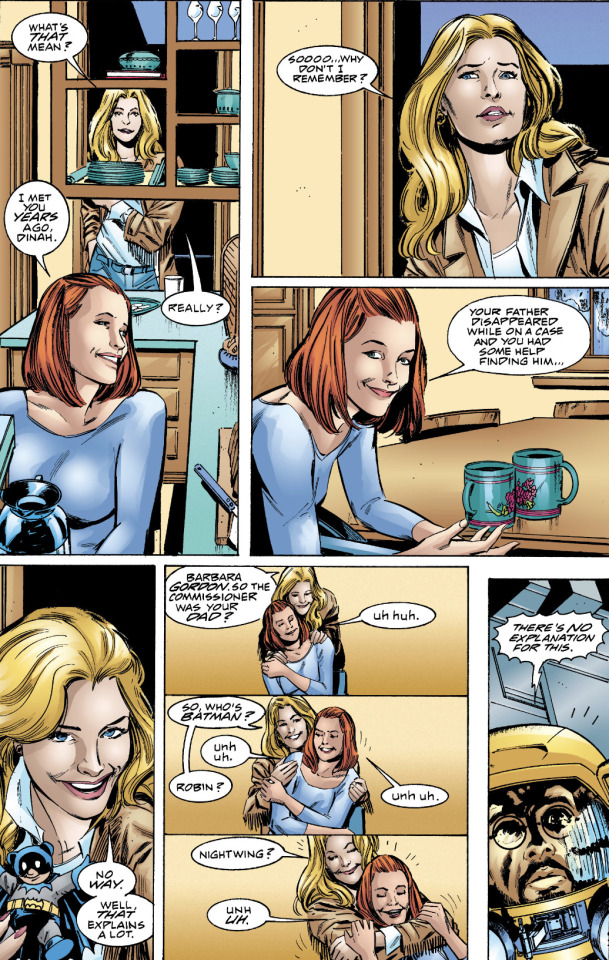


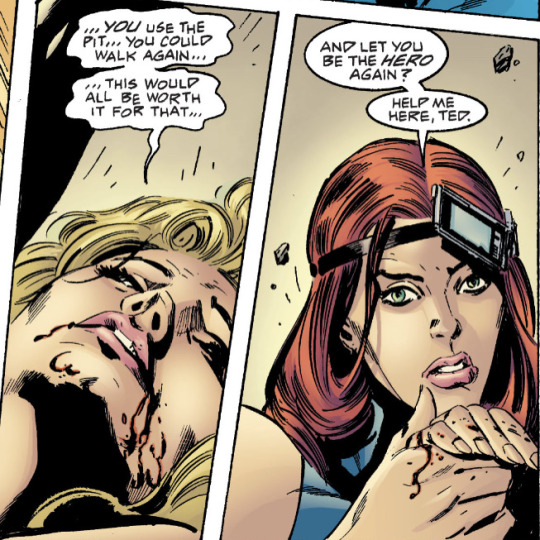
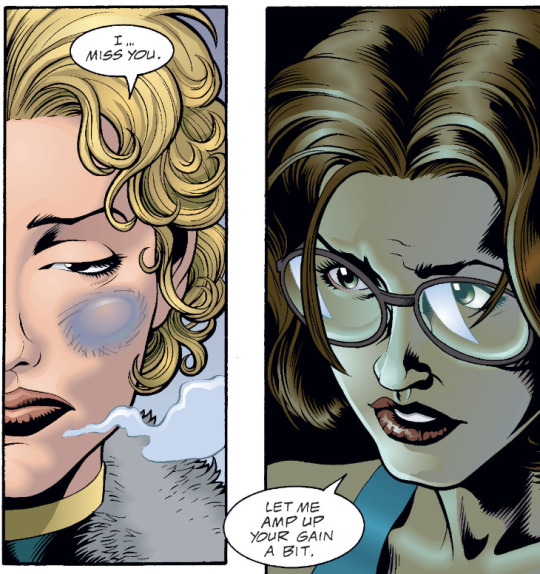
birds of gay, a compilation.
#dinahbabs#barbara gordon#dinah lance#birds of prey#read along#there is absolutely no heterosexual explanation for the way they are about each other. none.
445 notes
·
View notes
Text

370 notes
·
View notes
Text
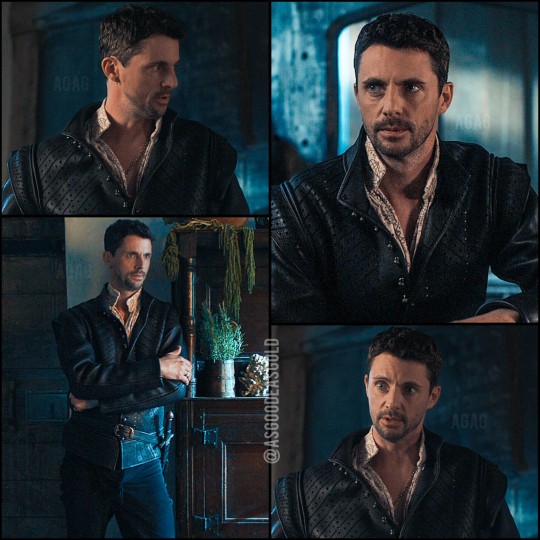

Shadow of Night Read Along Ch21
‘No offense taken, Goody Alsop. But if you take this matter to your elders, Diana’s identity will be known across London.’ Matthew stood. ‘I can’t allow that.’
‘Every witch in the city has already heard about your wife. News travels quickly here, no small thanks to your friend Christopher Marlowe,’ Goody Alsop said, craning her neck to meet his eyes. ‘Sit down, Master Roydon. My old bones no longer bend that way.’
To my surprise, Matthew sat.
Matthew is throwing his cranky weight around with the subtelty of a bulldozer but Goody Alsop is having none of it. She is the boss. You show him Goody.
📷 Sky/Bad Wolf A Discovery of Witches (2021) s2:02 my edits
#matthew goode#matthewgoode#teresa palmer#sheila hancock#a discovery of witches#adow#adow s2#shadow of night#shadow of night read along#read along#deborah harkness#all souls series#vampire#hot vampire
55 notes
·
View notes
Text
youtube
New episode of Let’s Talk About Book! Currently reading Mistborn: The Final Empire. This episode we get Smeevca learning hints about Kandra and a bit of Feruchemy. Kelsier goes to see the army, Vin confronts Elend about Skaa woman and the evils of the nobility. We also get some guest barks from Tilly and Dexter 🐾
#Youtube#cosmere#mistborn#the final empire#Let’s Talk About Book#LTAB#just some queers talking about books#first reader podcast#book podcast#brandon sanderson#read along#mistborn: the final empire#vin mistborn#kelsier#elend venture
21 notes
·
View notes
Text
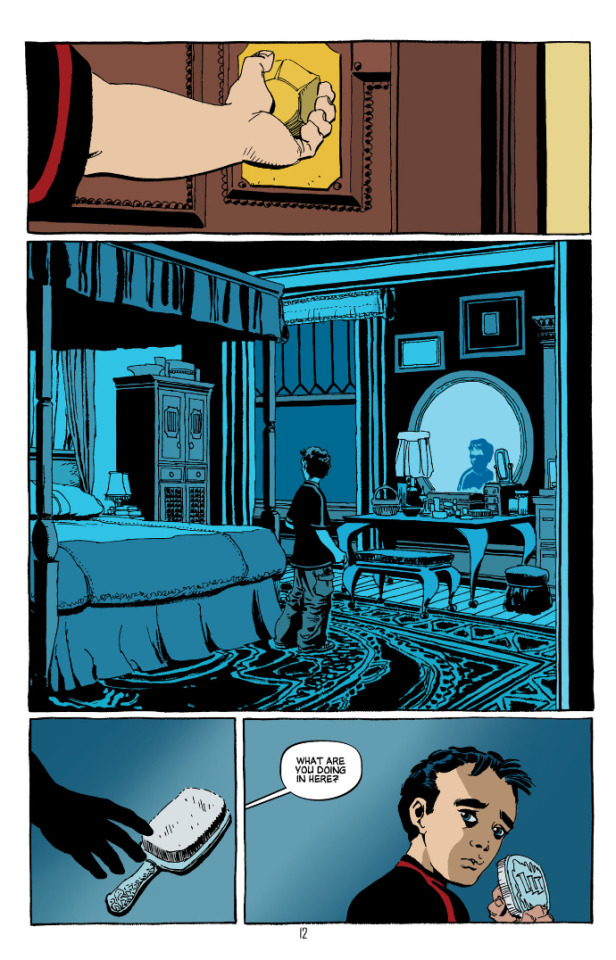
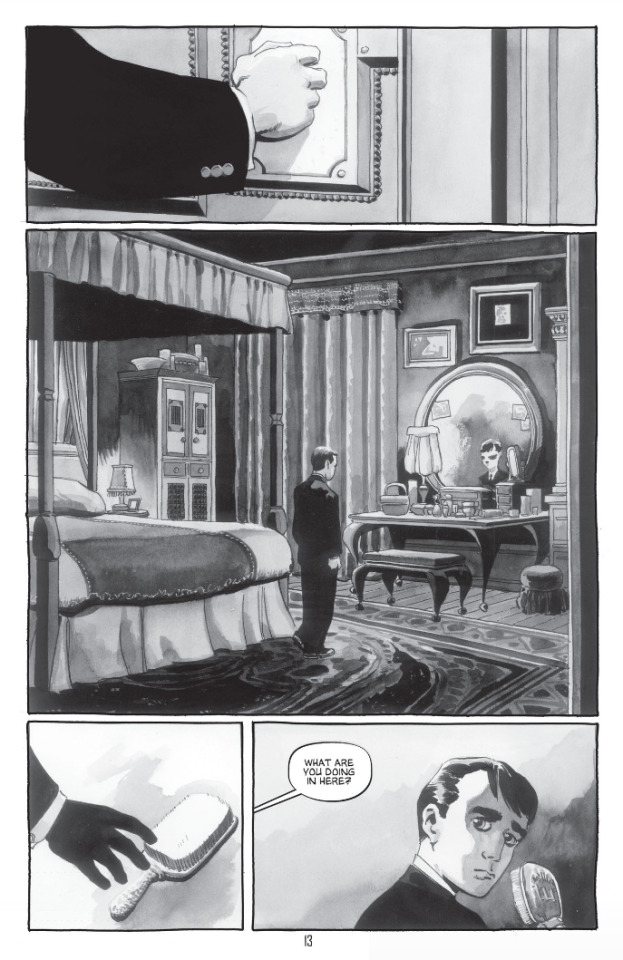
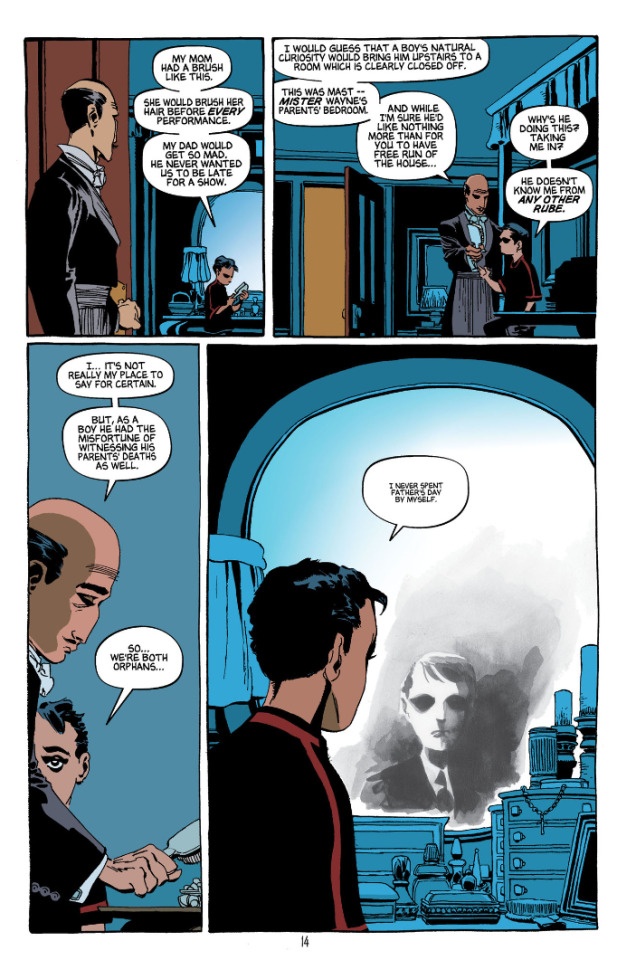
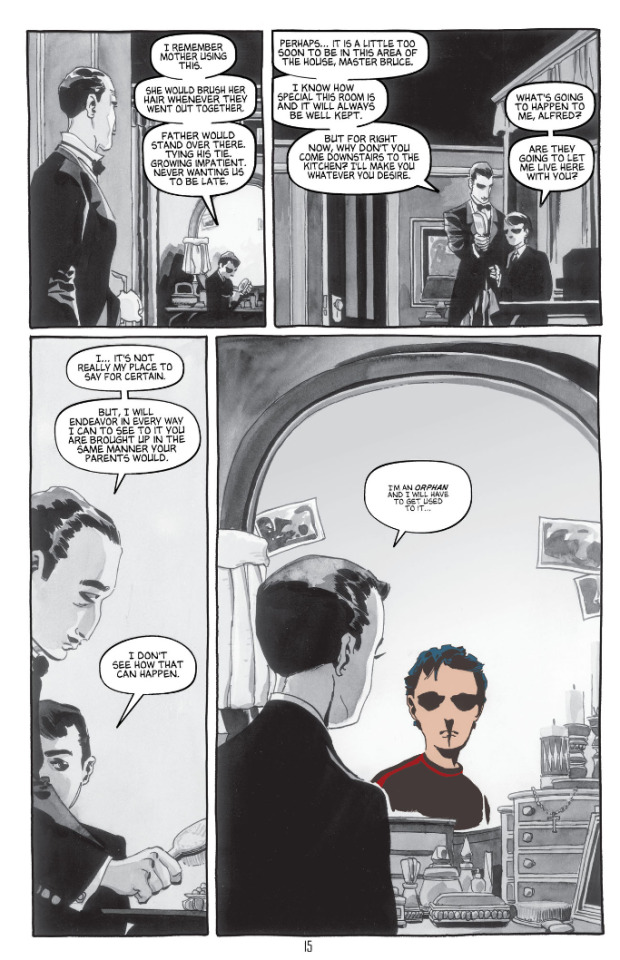
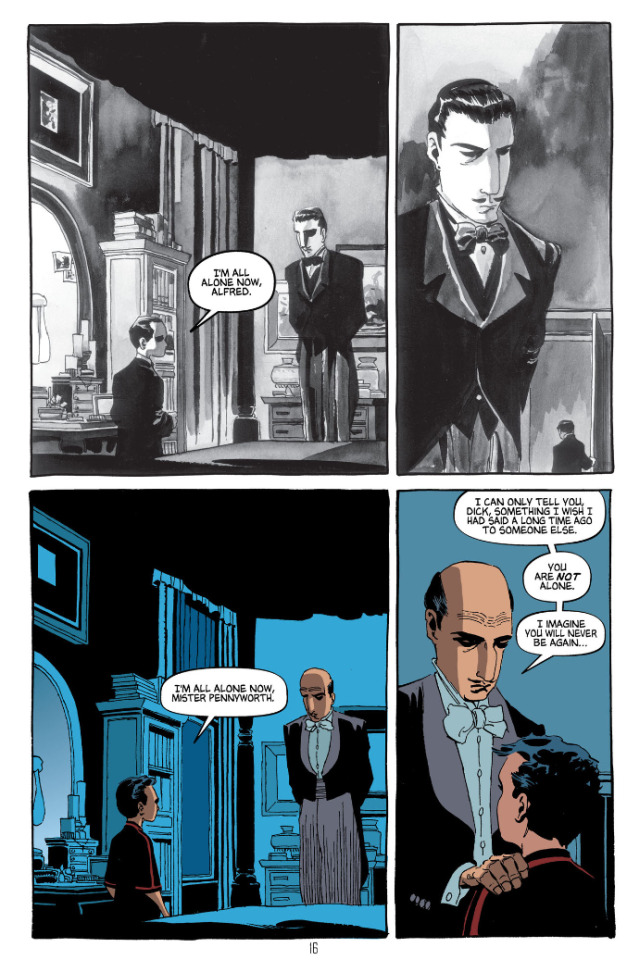
This sequence is phenomenal. So well done from every single aspect. The direction, writing, art, coloring, and emotional beats are all flawless.
66 notes
·
View notes
Text
I just finished the creeping shadow for the first time and holy shit.
major spoiler warnings under the cut
I had already been told about Penelope being Marissa and was fully aware of it going into this. that was on me for waiting so long between reading the hollow boy and the creeping shadow. but the way skull dropped that at the end was absolutely iconic. just like he always is. I love him so much.
also Kipps is my tiny child. am I about his age? yes. but I have adopted him he is tiny and needs protecting. I also love him.
I also have FEELINGS about George storming in and losing his mind when he thought they died. and about how his bad aim was made an asset in his fury. I want to give him a hug he had a rough go this book.
and further feelings about the progression of holly and Lucy's relationship. and holly in general. I love her so much.
and while I'm at it Lucy and skull being casual roomies at the start was amazing. I still think Lucy was stupid and wrong for leaving, but I absolutely loved their dynamic there. and the amount of Skull™ lines is amazing. I want to make some sort of art that is just skull quotes. I seriously love him so much. I will be stealing his gender in the night when he is least prepared.
I also feel like Lucy did the most growth in this book. I still have my gripes with her and she is still my least favorite of them, but she is getting better. i do have several things I wish I would have been able to see from other perspectives but that's what I have ao3 for.
I've had several things from the empty grave spoiled for me, but between my deep love for these characters, my investment in the delivery of the story, and the president that the creeping shadow set for spoiled details still having payoff in this series, I am so hyped to read the next one tomorrow. it will be bittersweet to be done with the series, but I take comfort knowing that my autism will not be releasing me from this series for a long time. I really do love these characters and their stories.
and I have been hit with a fresh wave of unending fury that Netflix cut their adaptation off before it really picked up. I would give my left leg to see holly on screen or Kipps with his goggles or skull's full appearance on the other side or Lucy straight up killing Steve rotwell or the ghost that impersonated Lockwood at the end of thb or the entire poltergeist sequence before that or-
#lockwood and co#lockwood and co books#george cubbins#lucy carlyle#anthony lockwood#holly munro#quill kipps#the skull in the jar#lockwood and co spoilers#read along#the creeping shadow#save lockwood and co#spoilers
30 notes
·
View notes
Text
May 8 - Foul Bauble Of Man's Vanity
Re Dracula/Dracula Daily
So, I got distracted and now I'm behind by about a week. So be it, I'll catch up. Starting with this one.
Serious props to the voice actors here. Jonathon's stressed venting over being trapped and in danger, and Dracula's fervent rant over his people's history were excellent. I was drawn right in. They really set the tension and the tone. There were no skipped bits this round, so just a reaction to the podcast today. And a little definitions bit at the bottom for the words I had to google.
Jonathon has stopped turning his back on his ill feelings and the numerous red flags, grateful even for his older descriptive journal entries to refer upon and determined to keep clear record onwards. I guess not seeing someone in the mirror and getting choked out would be too much for anyone to hide from. That and his destructive tendencies.
I like how he takes the time to feel gratitude for the rosary and the woman who gifted it, wondering on the manner in which it works. Also the little tangent, 'now I can't shave! how annoying!'. Coping skills 101.
He's not just kept older fears to heart but has started actively looking into things as well. Thanks to that he knows that there are no servants, only himself and Dracula, that the man hasn't consumed anything and that there's no way out. All the doors are locked and his window just leads to a precipice ending in rivers, chasms and forests, all easily seen from the castle. It's no wonder the poor man ran about the place in a panic.
Jonathon is taking care with his interactions with Count Dracula too, planning ahead, how to react, how to behave, what to, what not say. He's even gone with so bold a move as to dig out personal information from the man himself. And wasn't that interesting.
Count Dracula fell for it, hook line and sinker. He fell into a fervent rant over the histories, follies and glories of his blood, his people, his land. He ranted on wars and battles, dismissed more pacifist and communal behaviours, which showed a lot into his personality, his priorities and his attitude towards others. He even clued Jonathon in on who he is was, when he came from, his role in the past, when he went on about his achievement against the Turks.
Was it not this Dracula, indeed, who inspired that other of his race who in a later age again and again brought his forces over the great river into Turkey-land; who, when he was beaten back, came again, and again, and again, though he had to come alone from the bloody field where his troops were being slaughtered, since he knew that he alone could ultimately triumph! They said that he thought only of himself. Bah! what good are peasants without a leader?
Overall, it was a stellar success on Jonathon's part. It could even make for a historical record there. What a thing for a historian to get their hands on.
Jonathon has a point though. This, like with the other nights, didn't end til morn. He compared it the beginning of the "Arabian Nights" or the ghost of Hamlet's father, ending at cockcrow. Not very comforting comparisons.
It was an interesting chapter. Very informative. Love the building stress, the increasing urgency and the worldbuilding.
My little definitions page, in the order they came up. Almost all are directly copy pasted, with some hyperlinks for clarification sake.
Diffuse: lacking clarity or conciseness, verbose, wordy, longwinded
Prosaic: without interest, imagination, and excitement, prose lacking poetic terms and verbosity
Demoniac: possessed or influenced by a demon
Boyar: a high ranking member of Russian aristocracy, serving under the prince
Szekelys: Székely people are ancient Hungarians, living in Transylvania in Székelyföld (Szeklerland), situated in Romania
Ugric: Ugrians or Ugors were the ancestors of the Hungarians of Central Europe, and the Khanty and Mansi people of the Khanty-Mansi Autonomous Okrug of Russia.
Scythia: or Scythica was the region of Eastern Europe corresponding to the Pontic steppe. The Scythians were an ancient Eastern Iranian equestrian nomadic people.
Attila: Attila the Hun was the leader of the Hunnic Empire from 434 to 453. Attila the Hun is used as a figure for an extremely vicious fighter or cruel person, especially in political contexts.
Magyar: The Magyars were horsemen from the Pontic-Caspian steppe. Their people make up the majority of the Hungarians.
Lombard: a Germanic people who conquered most of the Italian Peninsula from 568 to 774. They originated from Scandinavia.
Avar: a nomadic equestrian people from central Asia who built up an empire in the area between the Adriatic and the Baltic seas from the 6th century.
Bulgar: The Bulgars were Turkic semi-nomadic warrior tribes that flourished in the Pontic–Caspian steppe and the Volga region during the 7th century.
Arpad: Árpád was the head of the confederation of the Magyar tribes at the turn of the 9th and 10th centuries. He was a ruler of what we now call Hungary.
Honfoglalas: the Hungarian conquest of the Carpathian Basin
Cassova: or Kosovo. Kosovo, officially the Republic of Kosovo is a landlocked partially recognised state in Southeast Europe, lying in the centre of the Balkans.
Wallach: the people of Wallachia, now Romania
Voivode: a local ruler, governor or military commander, especially the semi-independent rulers of Transylvania, Wallachia, or Moldova before c1700.
Mohács: is a town in Baranya County, Hungary, on the right bank of the Danube. The Battle of Mohács was fought on 29 August 1526 near Mohács.
Hapsburgs: aka the House of Austria. One of the most prominent and important dynasties in European history.
Romanoffs: or the Romanovs. The Russian imperial family in control from 1613 to 1917. Famous for the murder of the Romanov family wherein Princess Anastasia went missing, presumed dead.
#madame ellunas moonlit readings#dracula daily#re dracula#may 8#foul bauble of man's vanity#read along#reactions#spotify#podcast#definitions#Spotify
67 notes
·
View notes
Text
Officially live blogging my first time reading The Iliad (Emily Wilson's translation) because why not? Started 17/1/24.
*ahem*
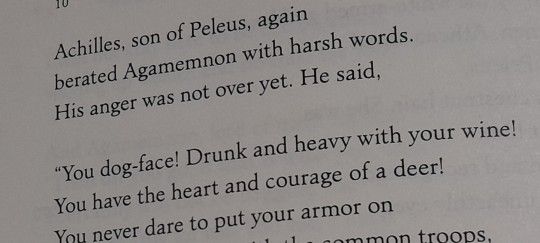
This is such a childish argument but the creativity of the insults has got me thinking. Like yeah, i'd probably be offended too if someone called me 'dog-face' or 'cannibal king'.
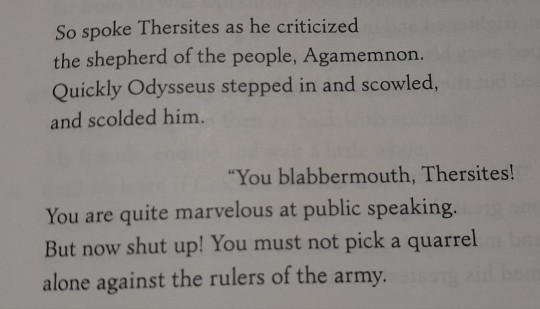
I like how this is translated, I can just hear the sarcasm and venom in Odysseus' voice and all these arguing among themselves really shows the toll nine years of war has taken on everyone.

I know Hector calling Paris pretty is meant to be taunting and emasculating but the phrasing made me laugh at first.
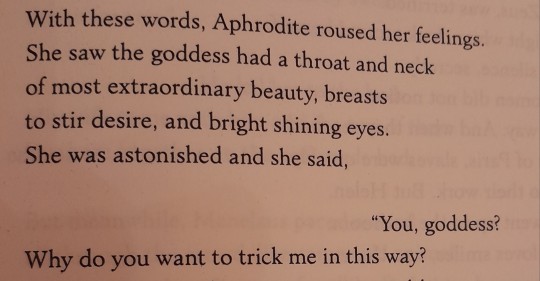
There is no heterosexual explanation for this, Helen. Which i know is mainly because heterosexuality didn't exist as a defined concept or label but... therefore it's not incorrect to read this as gay right?
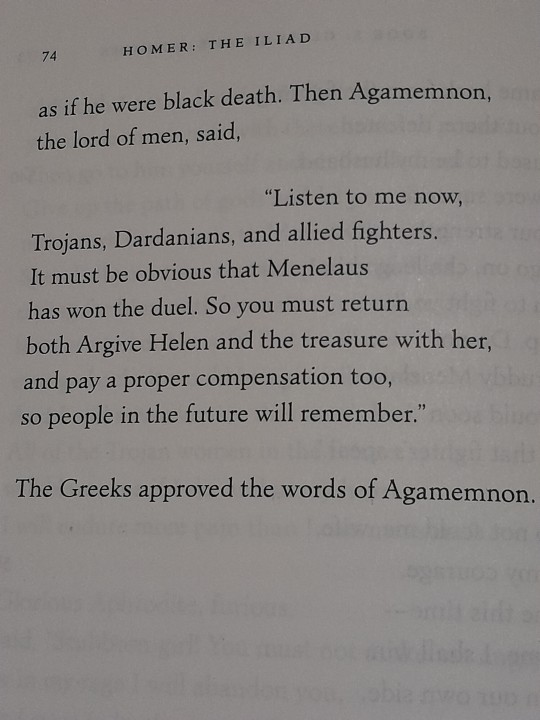
You're telling me Aphrodite almost ended this whole ten year war without anyone else dying just by taking Paris out of the fight at the right moment + making him horny and now Hera and Athena want to start it up again?? Come on guys even Zeus was ready to move on.
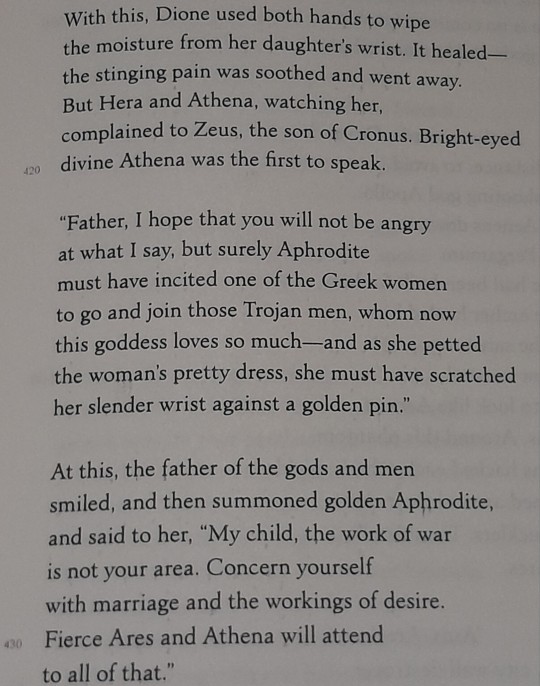
Hardly anyone in this family is supporting Aphrodite and it's making me unexpectedly defensive. She was protecting her son, Athena!

R.I.P Sarpedon. I got kinda attached to him and Pelagon and now i know I am not prepared for what happens to Achilles and Patroclus. Send help.

Nothing quite like reading a very old poem and realising we ARE the people in the future who they knew would still be telling and listening to this story. Just like people were before us and probably will long after us.

On the one hand Hector should really have listened to Andromache but on the other hand I am not immune to him taking off his helmet to hug his baby. God.
#the iliad#homer#emily wilson#homeric poems#homeric epics#translated literature#classics#read along#live blogging#Esther reads The Iliad
17 notes
·
View notes
Text
BBC Read Along - A Long, Fatal Love Chase by Louise May Alcott

What time is it? Time for a sexy priest 🥵💦
This month's read along is Chapter 12 - Behind The Grating on the American March 13th and the Aussie Thursday 14th of March!
How does the read-along work?
Jump onto the Bella's Book Club Discord
Just here to listen? Go to our voice channels (at the bottom of channel list with a speaker icon🔊)
Connect your audio (we suggest joining muted by clicking on the mute button)

4. Want to take a turn reading? Let the mods know in the #read-along-chat channel before you click on over to the voice channels and join in the chin wagging!
5. Reader turns are usually approx. 10 minutes each (mods will keep track and ping you at the 1 minute mark.) Read along from your own copy or keep track via our livestream of the text.
Have fun!
#BBC read along#bellas book club#official™ announcements#read along#A Long Fatal Love Chase#Louisa May Alcott
16 notes
·
View notes
Text
Fulgrim (the book, and not the other book also called Fulgrim but with a subtitle)
This post contains spoilers for Fulgrim, by Graham McNeill, originally published as a novel on (as nearly as I can tell) July 2nd, 2007. It does not contain spoilers for Fulgrim: The Palatine Phoenix by Josh Reynolds, published in October 2017.
Fulgrim is the story of Fulgrim, the Palatine Phoenix, Primarch of the Emperor's Children Legion of Space Marines, and his fall to Chaos during the leadup to and events surrounding the initial steps of Horus's rebellion in the Istvaan system as told in Galaxy in Flames. Like Flight of the Eisenstein, it starts by covering events significantly earlier than Horus Rising, beginning with the the Emperor's Children prosecuting a war of extermination against an alien race called the Laer.
Here's a plot summary:
The Emperor's Children exctinctify a species of sneople called the Laer and steal a magic sword from their central temple; the temple is very clearly (to the reader) dedicated to Slaanesh, one of the four big Chaos gods, the one that's all about sensation and excess and has become less and less about sex over time as GW realizes that gets in the way of parents leaving their kids at GW stores. Fulgrim takes the sword as a trophy; it starts talking to him but because he doesn't know what Chaos is he just assumes it's intrusive thoughts. Also the artists and documentarians ("remembrancers") who travel with the fleet go down to document the glorious conquest etc. and when they go to the big Slaanesh temple they all get obsessed with pursuing sensation and excess, kicking off a B-plot that'll be important later. Also also, the Emperor's Children's chief apothecary, Fabius, gets inspired by the Laer to invent cool new combat drugs and enhancement surgeries, which he sells Fulgrim on with the help of Fulgrim's evil sword intrusive thoughts.
Then the Emperor's Children fight a fleet of divergent humans called the Diasporex who have some aliens working with them; during this they meet up with the Iron Hands Legion and their Primarch Ferrus Manus who has literal iron hands on his flagship the Fist of Iron. The book talks about how Fulgrim and Ferrus Manus are bestest of best friends who each wield a weapon forged by the other, so Ferrus Manus has a big hammer made by Fulgrim and Fulgrim has a flaming sword made by Ferrus Manus. The Emperor's Children and Iron Hands wipe out the Diasporex. During this campaign, Fabius's combat drugs get widely adopted by the Legion and they start being less about pursuing perfection and more about pursuing combat highs.
Then the Emperor's Children explore a region of space where lots of ships disappear and find a lot of unsettled paradise worlds, and are approached by a space elf named Eldrad Ulthran who warns Fulgrim that Horus is going to turn traitor. Fulgrim's evil sword intrusive thoughts tell him this is a lie and Eldrad needs to die so they fight. Fulgrim kills an Avatar of Khaine and then gets mad and goes around virus-bombing all the unsettled paradise worlds they found.
Then Fulgrim takes the fleet to meet with Horus and is like "You're not planning to turn traitor, are you?" and Horus is like "So what if I am?" and the evil sword Fulgrim's intrusive thoughts go "Horus is awesome, if he does turn traitor you should totes follow him" and Fulgrim thinks "That seems reasonable" and says "I suppose if you were going to turn traitor I'd side with you" and Horus goes "Well, I am turning traitor."
Fulgrim then goes off to try to convince his BFF Ferrus Manus to join with Horus while the majority of the Emperor's Children stay behind and do the Istvaan III Atrocity, as told in Galaxy in Flames and the middle part of Flight of the Eisenstein. It does not go well, Ferrus Manus is like "I could never betray the Emperor, you're not my brother" and they fight, and then Fulgrim goes "You'll always be my brother" and wins the fight but doesn't kill him, hoping they can reconcile later. Fulgrim does have his fleet blast the shit out of the Iron Hands fleet, though.
Fulgrim then returns to the Istvaan system and, by Horus's order, spends a couple of months fortifying Istvaan V for a followup operation, during which time elsewhere a very angry Ferrus Manus and his Iron Hands (and also his iron hands), along with the Raven Guard and Salamanders, get ready to serve as the first wave of an assault on Istvaan V, to be followed up by a second wave consisting of the Alpha Legion, Night Lords, Word Bearers, and Iron Warriors. Just as they finish fortifying the planet, the Emperor's Children attend a musical concert called the Maravaglia put on by those Slaanesh-crazed remembrancer artists, which ends up being one of those King in Yellow dealios where the play performs them, a bunch of demons are summoned, everyone in the audience goes crazy and sexmurders each other (well, all the non-space-marines, anyway), and Noise Marines get invented, though later on when 30k gets its own game the 30k-era Noise Marines will be called Kakaphoni.
Finally, the Iron Hands, Salamanders, and Raven Guard launch their assault on Istvaan V, followed by the Alpha Legion, Night Lords, Word Bearers, and Iron Warriors who land behind them and then open fire on the first three because it turns out those second four are also secret traitors. Ferrus Manus is on the planet charging towards Fulgrim to have a duel when he sees this, gets extra mad, and they fight again. Fulgrim really doesn't want to kill Ferrus Manus but his intrusive thoughts goad him into it, and as soon as he cuts off Ferrus Manus's head he realizes that his intrusive thoughts have actually been the demon sword all along and that he's damned himself, at which point it starts laughing at him. He tries to stab himself, but it's like "No, you shouldn't risk doing that, because who knows what agonies of regret your spirit will suffer after death; you should let me give you oblivion instead" and then Fulgrim in his moment of despair accedes to this, at which point the demon in the sword just possesses him and shoves his consciousness into the back of his mind to watch and scream forever as the demon pilots his body around for the rest of the Heresy. The end!
So Graham McNeill seems to be improving. In part this seems to be him developing as a writer and in part it's that he's just... writing fewer arguments. There are a few arguments in the book and they are just as stupid as every argument he wrote into False Gods and "The Kaban Project," but they take up less space. I... don't know if it's good? It clarified an order of events for me, and it continues to hammer home the theme that Chaos works quickly and destructively, like it's not subtle at all, you start out going "There's no harm in touching this sword" and then you're cutting off people's faces and stapling them to your knees in no time flat, and in the meantime murdering anyone who isn't inclined to degrade as fast as you.
I dunno, it's decent for what it is. It's not aggravating the way his earlier works were. I liked it, I guess? This is not high literature.
There are some peculiarities, four of which stick out to me.
First, uh... there's a bit where some remembrancers are talking about how they wish they could go down to the surface of Laeran more freely to document the Emperor's Children victory, but are being prevented from doing so because there's "still resistance" on the surface, and then in the very next paragraph they mention that the Laer have been rendered extinct. So... did the sneople have vassal species? Robot drones? It'd have been nice to hear about them if so but I guess not.
Second... the decision to have Ferrus Manus know about Horus and Fulgrim's treachery seems to cheapen the events of Flight of the Eisenstein a bit. Like the whole thing with the Eisenstein is supposed to be that it's the last, desperate hope of the loyalists doing an Odyssey to get news of the Horus Heresy back to Terra in time to counterattack, which tragically results in the Istvaan V Dropsite Massacre when Horus turns out to be one step ahead of them, but here it kind of comes across as that all would have happened even if the Eisenstein hadn't escaped. Dramatically it's an odd choice. I might have written it so that Ferrus Manus comes out of that first fight convinced that Fulgrim is a traitor but not knowing Horus is or something, that feels to me like it would have worked better.
Third, and this is specific to me: At some point during the book Fulgrim is introduced to the work of ancient Terran poet Cornelius Blayke, who is clearly just William Blake, and starts quoting him. Like he has him say "He who desires but acts not, breeds pestilence." And that works well for the book... but I've played Devil May Cry 5. Anybody else who's played DMC5 will understand the effect this might have -- and indeed does have -- on certain dramatic moments.
Fourth, this is less important but I think very funny... okay, so the book establishes that Ferrus Manus and Fulgrim, when they first met, had a crafting competition -- Fulgrim made a big hammer and Ferrus Manus made a flaming sword. At the end of it, each of them proclaimed the other the victor, and they swapped weapons and that's why they became BFFs. And during the first fight, they're fighting with the weapons they made each other, so Fulgrim's got the sword and Ferrus Manus has the hammer. Fulgrim breaks the sword and then takes the hammer when he wins and leaves, and later Ferrus Manus fixed the sword. So when they fight again on Istvaan V at the end of the book, Ferrus Manus has the flaming sword and Fulgrim's got the Laer blade, but when he sees that Ferrus Manus intends to fight him with the flaming sword he made, Fulgrim stows the Laer blade and spends most of the fight using the hammer, so it's an inversion of the previous fight, with each using the weapon the other used last time, the ones they made themselves instead of the ones they gave each other. It's honestly pretty neat!
GW sells minis of these two characters, and they're meant to serve together as a diorama of the fight on Istvaan V as well as serving as minis to use in games of Horus Heresy. Fulgrim's got the Laer blade, which, fair, that was what he was using at the end of the fight, but Ferrus Manus has the hammer, because he's a hammer guy and his game rules are for fighting with a hammer. And I get it, if you're making a Ferrus Manus mini he'd better be wielding his big hammer! But if you put the two of them together as a diorama that means Ferrus Manus is wielding the weapon that his opponent was wielding in the fight that it's a diorama of. I am choosing to interpret this as symbolic of the way the Horus Heresy's status as a commercial product will forever be in tension with the artistic aspirations of the people who work on it.
10 notes
·
View notes
Text

Ten years!!!! They hadn't seen each other in TEN YEARS
27 notes
·
View notes
Text

absolutely obsessed with helena trying to find a date night outfit that fits with the mask. (bop1999 #68)
#helena bertinelli#huntress#birds of prey#birds of prey 1999#read along#girl WHAT are you doing#he's a douche who manipulated you into a date in order to save dinah you do NOT have to DRESS UP#but also i love that she did anyway objmklgnkgn#helena said no i will not be showing up in anything less than a killer Look thank you
393 notes
·
View notes
Text
Frankenstein
or
The Modern Prometheus
By Mary Shelley
LETTER I.
To Mrs. Saville, England.
St. Petersburgh, Dec. 11th, 17—.
You will rejoice to hear that no disaster has accompanied the commencement of an enterprise which you have regarded with such evil forebodings. I arrived here yesterday; and my first task is to assure my dear sister of my welfare, and increasing confidence in the success of my undertaking.
I am already far north of London; and as I walk in the streets of Petersburgh, I feel a cold northern breeze play upon my cheeks, which braces my nerves, and fills me with delight. Do you understand this feeling? This breeze, which has travelled from the regions towards which I am advancing, gives me a foretaste of those icy climes. Inspirited by this wind of promise, my day dreams become more fervent and vivid. I try in vain to be persuaded that the pole is the seat of frost and desolation; it ever presents itself to my imagination as the region of beauty and delight. There, Margaret, the sun is for ever visible; its broad disk just skirting the horizon, and diffusing a perpetual splendour. There—for with your leave, my sister, I will put some trust in preceding navigators—there snow and frost are banished; and, sailing over a calm sea, we may be wafted to a land surpassing in wonders and in beauty every region hitherto discovered on the habitable globe. Its productions and features may be without example, as the phenomena of the heavenly bodies undoubtedly are in those undiscovered solitudes. What may not be expected in a country of eternal light? I may there discover the wondrous power which attracts the needle; and may regulate a thousand celestial observations, that require only this voyage to render their seeming eccentricities consistent for ever. I shall satiate my ardent curiosity with the sight of a part of the world never before visited, and may tread a land never before imprinted by the foot of man. These are my enticements, and they are sufficient to conquer all fear of danger or death, and to induce me to commence this laborious voyage with the joy a child feels when he embarks in a little boat, with his holiday mates, on an expedition of discovery up his native river. But, supposing all these conjectures to be false, you cannot contest the inestimable benefit which I shall confer on all mankind to the last generation, by discovering a passage near the pole to those countries, to reach which at present so many months are requisite; or by ascertaining the secret of the magnet, which, if at all possible, can only be effected by an undertaking such as mine.
These reflections have dispelled the agitation with which I began my letter, and I feel my heart glow with an enthusiasm which elevates me to heaven; for nothing contributes so much to tranquillise the mind as a steady purpose,—a point on which the soul may fix its intellectual eye. This expedition has been the favourite dream of my early years. I have read with ardour the accounts of the various voyages which have been made in the prospect of arriving at the North Pacific Ocean through the seas which surround the pole. You may remember, that a history of all the voyages made for purposes of discovery composed the whole of our good uncle Thomas's library. My education was neglected, yet I was passionately fond of reading. These volumes were my study day and night, and my familiarity with them increased that regret which I had felt, as a child, on learning that my father's dying injunction had forbidden my uncle to allow me to embark in a seafaring life.
These visions faded when I perused, for the first time, those poets whose effusions entranced my soul, and lifted it to heaven. I also became a poet, and for one year lived in a Paradise of my own creation; I imagined that I also might obtain a niche in the temple where the names of Homer and Shakspeare are consecrated. You are well acquainted with my failure, and how heavily I bore the disappointment. But just at that time I inherited the fortune of my cousin, and my thoughts were turned into the channel of their earlier bent.
Six years have passed since I resolved on my present undertaking. I can, even now, remember the hour from which I dedicated myself to this great enterprise. I commenced by inuring my body to hardship. I accompanied the whale-fishers on several expeditions to the North Sea; I voluntarily endured cold, famine, thirst, and want of sleep; I often worked harder than the common sailors during the day, and devoted my nights to the study of mathematics, the theory of medicine, and those branches of physical science from which a naval adventurer might derive the greatest practical advantage. Twice I actually hired myself as an under-mate in a Greenland whaler, and acquitted myself to admiration. I must own I felt a little proud, when my captain offered me the second dignity in the vessel, and entreated me to remain with the greatest earnestness; so valuable did he consider my services.
And now, dear Margaret, do I not deserve to accomplish some great purpose? My life might have been passed in ease and luxury; but I preferred glory to every enticement that wealth placed in my path. Oh, that some encouraging voice would answer in the affirmative! My courage and my resolution is firm; but my hopes fluctuate, and my spirits are often depressed. I am about to proceed on a long and difficult voyage, the emergencies of which will demand all my fortitude: I am required not only to raise the spirits of others, but sometimes to sustain my own, when theirs are failing.
This is the most favourable period for travelling in Russia. They fly quickly over the snow in their sledges; the motion is pleasant, and, in my opinion, far more agreeable than that of an English stage-coach. The cold is not excessive, if you are wrapped in furs,—a dress which I have already adopted; for there is a great difference between walking the deck and remaining seated motionless for hours, when no exercise prevents the blood from actually freezing in your veins. I have no ambition to lose my life on the post-road between St. Petersburgh and Archangel.
I shall depart for the latter town in a fortnight or three weeks; and my intention is to hire a ship there, which can easily be done by paying the insurance for the owner, and to engage as many sailors as I think necessary among those who are accustomed to the whale-fishing. I do not intend to sail until the month of June; and when shall I return? Ah, dear sister, how can I answer this question? If I succeed, many, many months, perhaps years, will pass before you and I may meet. If I fail, you will see me again soon, or never.
Farewell, my dear, excellent Margaret. Heaven shower down blessings on you, and save me, that I may again and again testify my gratitude for all your love and kindness.
Your affectionate brother,
R. Walton.
LETTER II.
To Mrs. Saville, England.
Archangel, 28th March, 17—.
How slowly the time passes here, encompassed as I am by frost and snow! yet a second step is taken towards my enterprise. I have hired a vessel, and am occupied in collecting my sailors; those whom I have already engaged, appear to be men on whom I can depend, and are certainly possessed of dauntless courage.
But I have one want which I have never yet been able to satisfy; and the absence of the object of which I now feel as a most severe evil. I have no friend, Margaret: when I am glowing with the enthusiasm of success, there will be none to participate my joy; if I am assailed by disappointment, no one will endeavour to sustain me in dejection. I shall commit my thoughts to paper, it is true; but that is a poor medium for the communication of feeling. I desire the company of a man who could sympathise with me; whose eyes would reply to mine. You may deem me romantic, my dear sister, but I bitterly feel the want of a friend. I have no one near me, gentle yet courageous, possessed of a cultivated as well as of a capacious mind, whose tastes are like my own, to approve or amend my plans. How would such a friend repair the faults of your poor brother! I am too ardent in execution, and too impatient of difficulties. But it is a still greater evil to me that I am self-educated: for the first fourteen years of my life I ran wild on a common, and read nothing but our uncle Thomas's books of voyages. At that age I became acquainted with the celebrated poets of our own country; but it was only when it had ceased to be in my power to derive its most important benefits from such a conviction, that I perceived the necessity of becoming acquainted with more languages than that of my native country. Now I am twenty-eight, and am in reality more illiterate than many schoolboys of fifteen. It is true that I have thought more, and that my day dreams are more extended and magnificent; but they want (as the painters call it) keeping; and I greatly need a friend who would have sense enough not to despise me as romantic, and affection enough for me to endeavour to regulate my mind.
Well, these are useless complaints; I shall certainly find no friend on the wide ocean, nor even here in Archangel, among merchants and seamen. Yet some feelings, unallied to the dross of human nature, beat even in these rugged bosoms. My lieutenant, for instance, is a man of wonderful courage and enterprise; he is madly desirous of glory: or rather, to word my phrase more characteristically, of advancement in his profession. He is an Englishman, and in the midst of national and professional prejudices, unsoftened by cultivation, retains some of the noblest endowments of humanity. I first became acquainted with him on board a whale vessel: finding that he was unemployed in this city, I easily engaged him to assist in my enterprise.
The master is a person of an excellent disposition, and is remarkable in the ship for his gentleness and the mildness of his discipline. This circumstance, added to his well known integrity and dauntless courage, made me very desirous to engage him. A youth passed in solitude, my best years spent under your gentle and feminine fosterage, has so refined the groundwork of my character, that I cannot overcome an intense distaste to the usual brutality exercised on board ship: I have never believed it to be necessary; and when I heard of a mariner equally noted for his kindliness of heart, and the respect and obedience paid to him by his crew, I felt myself peculiarly fortunate in being able to secure his services. I heard of him first in rather a romantic manner, from a lady who owes to him the happiness of her life. This, briefly, is his story. Some years ago, he loved a young Russian lady, of moderate fortune; and having amassed a considerable sum in prize-money, the father of the girl consented to the match. He saw his mistress once before the destined ceremony; but she was bathed in tears, and, throwing herself at his feet, entreated him to spare her, confessing at the same time that she loved another, but that he was poor, and that her father would never consent to the union. My generous friend reassured the suppliant, and on being informed of the name of her lover, instantly abandoned his pursuit. He had already bought a farm with his money, on which he had designed to pass the remainder of his life; but he bestowed the whole on his rival, together with the remains of his prize-money to purchase stock, and then himself solicited the young woman's father to consent to her marriage with her lover. But the old man decidedly refused, thinking himself bound in honour to my friend; who, when he found the father inexorable, quitted his country, nor returned until he heard that his former mistress was married according to her inclinations. "What a noble fellow!" you will exclaim. He is so; but then he is wholly uneducated: he is as silent as a Turk, and a kind of ignorant carelessness attends him, which, while it renders his conduct the more astonishing, detracts from the interest and sympathy which otherwise he would command.
Yet do not suppose, because I complain a little, or because I can conceive a consolation for my toils which I may never know, that I am wavering in my resolutions. Those are as fixed as fate; and my voyage is only now delayed until the weather shall permit my embarkation. The winter has been dreadfully severe; but the spring promises well, and it is considered as a remarkably early season; so that perhaps I may sail sooner than I expected. I shall do nothing rashly: you know me sufficiently to confide in my prudence and considerateness, whenever the safety of others is committed to my care.
I cannot describe to you my sensations on the near prospect of my undertaking. It is impossible to communicate to you a conception of the trembling sensation, half pleasurable and half fearful, with which I am preparing to depart. I am going to unexplored regions, to "the land of mist and snow"; but I shall kill no albatross, therefore do not be alarmed for my safety, or if I should come back to you as worn and woful as the "Ancient Mariner"? You will smile at my allusion; but I will disclose a secret. I have often attributed my attachment to, my passionate enthusiasm for, the dangerous mysteries of ocean, to that production of the most imaginative of modern poets. There is something at work in my soul, which I do not understand. I am practically industrious—pains-taking;—a workman to execute with perseverance and labour:—but besides this, there is a love for the marvellous, a belief in the marvellous, intertwined in all my projects, which hurries me out of the common pathways of men, even to the wild sea and unvisited regions I am about to explore.
But to return to dearer considerations. Shall I meet you again, after having traversed immense seas, and returned by the most southern cape of Africa or America? I dare not expect such success, yet I cannot bear to look on the reverse of the picture. Continue for the present to write to me by every opportunity: I may receive your letters on some occasions when I need them most to support my spirits. I love you very tenderly. Remember me with affection, should you never hear from me again.
Your affectionate brother,
Robert Walton.
LETTER III.
To Mrs. Saville, England.
My dear Sister, July 7th, 17—.
I write a few lines in haste, to say that I am safe, and well advanced on my voyage. This letter will reach England by a merchantman now on its homeward voyage from Archangel; more fortunate than I, who may not see my native land, perhaps, for many years. I am, however, in good spirits: my men are bold, and apparently firm of purpose; nor do the floating sheets of ice that continually pass us, indicating the dangers of the region towards which we are advancing, appear to dismay them. We have already reached a very high latitude; but it is the height of summer, and although not so warm as in England, the southern gales, which blow us speedily towards those shores which I so ardently desire to attain, breathe a degree of renovating warmth which I had not expected.
No incidents have hitherto befallen us that would make a figure in a letter. One or two stiff gales, and the springing of a leak, are accidents which experienced navigators scarcely remember to record; and I shall be well content if nothing worse happen to us during our voyage.
Adieu, my dear Margaret. Be assured, that for my own sake, as well as yours, I will not rashly encounter danger. I will be cool, persevering, and prudent.
But success shall crown my endeavours. Wherefore not? Thus far I have gone, tracing a secure way over the pathless seas: the very stars themselves being witnesses and testimonies of my triumph. Why not still proceed over the untamed yet obedient element? What can stop the determined heart and resolved will of man?
My swelling heart involuntarily pours itself out thus. But I must finish. Heaven bless my beloved sister!
R. W.
LETTER IV.
To Mrs. Saville, England.
August 5th, 17—.
So strange an accident has happened to us, that I cannot forbear recording it, although it is very probable that you will see me before these papers can come into your possession.
Last Monday (July 31st), we were nearly surrounded by ice, which closed in the ship on all sides, scarcely leaving her the sea-room in which she floated. Our situation was somewhat dangerous, especially as we were compassed round by a very thick fog. We accordingly lay to, hoping that some change would take place in the atmosphere and weather.
About two o'clock the mist cleared away, and we beheld, stretched out in every direction, vast and irregular plains of ice, which seemed to have no end. Some of my comrades groaned, and my own mind began to grow watchful with anxious thoughts, when a strange sight suddenly attracted our attention, and diverted our solicitude from our own situation. We perceived a low carriage, fixed on a sledge and drawn by dogs, pass on towards the north, at the distance of half a mile: a being which had the shape of a man, but apparently of gigantic stature, sat in the sledge, and guided the dogs. We watched the rapid progress of the traveller with our telescopes, until he was lost among the distant inequalities of the ice.
This appearance excited our unqualified wonder. We were, as we believed, many hundred miles from any land; but this apparition seemed to denote that it was not, in reality, so distant as we had supposed. Shut in, however, by ice, it was impossible to follow his track, which we had observed with the greatest attention.
About two hours after this occurrence, we heard the ground sea; and before night the ice broke, and freed our ship. We, however, lay to until the morning, fearing to encounter in the dark those large loose masses which float about after the breaking up of the ice. I profited of this time to rest for a few hours.
In the morning, however, as soon as it was light, I went upon deck, and found all the sailors busy on one side of the vessel, apparently talking to some one in the sea. It was, in fact, a sledge, like that we had seen before, which had drifted towards us in the night, on a large fragment of ice. Only one dog remained alive; but there was a human being within it, whom the sailors were persuading to enter the vessel. He was not, as the other traveller seemed to be, a savage inhabitant of some undiscovered island, but an European. When I appeared on deck, the master said, "Here is our captain, and he will not allow you to perish on the open sea."
On perceiving me, the stranger addressed me in English, although with a foreign accent. "Before I come on board your vessel," said he, "will you have the kindness to inform me whither you are bound?"
You may conceive my astonishment on hearing such a question addressed to me from a man on the brink of destruction, and to whom I should have supposed that my vessel would have been a resource which he would not have exchanged for the most precious wealth the earth can afford. I replied, however, that we were on a voyage of discovery towards the northern pole.
Upon hearing this he appeared satisfied, and consented to come on board. Good God! Margaret, if you had seen the man who thus capitulated for his safety, your surprise would have been boundless. His limbs were nearly frozen, and his body dreadfully emaciated by fatigue and suffering. I never saw a man in so wretched a condition. We attempted to carry him into the cabin; but as soon as he had quitted the fresh air, he fainted. We accordingly brought him back to the deck, and restored him to animation by rubbing him with brandy, and forcing him to swallow a small quantity. As soon as he showed signs of life we wrapped him up in blankets, and placed him near the chimney of the kitchen stove. By slow degrees he recovered, and ate a little soup, which restored him wonderfully.
Two days passed in this manner before he was able to speak; and I often feared that his sufferings had deprived him of understanding. When he had in some measure recovered, I removed him to my own cabin, and attended on him as much as my duty would permit. I never saw a more interesting creature: his eyes have generally an expression of wildness, and even madness; but there are moments when, if any one performs an act of kindness towards him, or does him any the most trifling service, his whole countenance is lighted up, as it were, with a beam of benevolence and sweetness that I never saw equalled. But he is generally melancholy and despairing; and sometimes he gnashes his teeth, as if impatient of the weight of woes that oppresses him.
When my guest was a little recovered, I had great trouble to keep off the men, who wished to ask him a thousand questions; but I would not allow him to be tormented by their idle curiosity, in a state of body and mind whose restoration evidently depended upon entire repose. Once, however, the lieutenant asked, Why he had come so far upon the ice in so strange a vehicle?
His countenance instantly assumed an aspect of the deepest gloom; and he replied, "To seek one who fled from me."
"And did the man whom you pursued travel in the same fashion?"
"Yes."
"Then I fancy we have seen him; for the day before we picked you up, we saw some dogs drawing a sledge, with a man in it, across the ice."
This aroused the stranger's attention; and he asked a multitude of questions concerning the route which the dæmon, as he called him, had pursued. Soon after, when he was alone with me, he said,—"I have, doubtless, excited your curiosity, as well as that of these good people; but you are too considerate to make enquiries."
"Certainly; it would indeed be very impertinent and inhuman in me to trouble you with any inquisitiveness of mine."
"And yet you rescued me from a strange and perilous situation; you have benevolently restored me to life."
Soon after this he enquired if I thought that the breaking up of the ice had destroyed the other sledge? I replied, that I could not answer with any degree of certainty; for the ice had not broken until near midnight, and the traveller might have arrived at a place of safety before that time; but of this I could not judge.
From this time a new spirit of life animated the decaying frame of the stranger. He manifested the greatest eagerness to be upon deck, to watch for the sledge which had before appeared; but I have persuaded him to remain in the cabin, for he is far too weak to sustain the rawness of the atmosphere. I have promised that some one should watch for him, and give him instant notice if any new object should appear in sight.
Such is my journal of what relates to this strange occurrence up to the present day. The stranger has gradually improved in health, but is very silent, and appears uneasy when any one except myself enters his cabin. Yet his manners are so conciliating and gentle, that the sailors are all interested in him, although they have had very little communication with him. For my own part, I begin to love him as a brother; and his constant and deep grief fills me with sympathy and compassion. He must have been a noble creature in his better days, being even now in wreck so attractive and amiable.
I said in one of my letters, my dear Margaret, that I should find no friend on the wide ocean; yet I have found a man who, before his spirit had been broken by misery, I should have been happy to have possessed as the brother of my heart.
I shall continue my journal concerning the stranger at intervals, should I have any fresh incidents to record.
August 13th, 17—.
My affection for my guest increases every day. He excites at once my admiration and my pity to an astonishing degree. How can I see so noble a creature destroyed by misery, without feeling the most poignant grief? He is so gentle, yet so wise; his mind is so cultivated; and when he speaks, although his words are culled with the choicest art, yet they flow with rapidity and unparalleled eloquence.
He is now much recovered from his illness, and is continually on the deck, apparently watching for the sledge that preceded his own. Yet, although unhappy, he is not so utterly occupied by his own misery, but that he interests himself deeply in the projects of others. He has frequently conversed with me on mine, which I have communicated to him without disguise. He entered attentively into all my arguments in favour of my eventual success, and into every minute detail of the measures I had taken to secure it. I was easily led by the sympathy which he evinced, to use the language of my heart; to give utterance to the burning ardour of my soul; and to say, with all the fervour that warmed me, how gladly I would sacrifice my fortune, my existence, my every hope, to the furtherance of my enterprise. One man's life or death were but a small price to pay for the acquirement of the knowledge which I sought; for the dominion I should acquire and transmit over the elemental foes of our race. As I spoke, a dark gloom spread over my listener's countenance. At first I perceived that he tried to suppress his emotion; he placed his hands before his eyes; and my voice quivered and failed me, as I beheld tears trickle fast from between his fingers,—a groan burst from his heaving breast. I paused;—at length he spoke, in broken accents:—"Unhappy man! Do you share my madness? Have you drank also of the intoxicating draught? Hear me,—let me reveal my tale, and you will dash the cup from your lips!"
Such words, you may imagine, strongly excited my curiosity; but the paroxysm of grief that had seized the stranger overcame his weakened powers, and many hours of repose and tranquil conversation were necessary to restore his composure.
Having conquered the violence of his feelings, he appeared to despise himself for being the slave of passion; and quelling the dark tyranny of despair, he led me again to converse concerning myself personally. He asked me the history of my earlier years. The tale was quickly told: but it awakened various trains of reflection. I spoke of my desire of finding a friend—of my thirst for a more intimate sympathy with a fellow mind than had ever fallen to my lot; and expressed my conviction that a man could boast of little happiness, who did not enjoy this blessing.
"I agree with you," replied the stranger; "we are unfashioned creatures, but half made up, if one wiser, better, dearer than ourselves—such a friend ought to be—do not lend his aid to perfectionate our weak and faulty natures. I once had a friend, the most noble of human creatures, and am entitled, therefore, to judge respecting friendship. You have hope, and the world before you, and have no cause for despair. But I—I have lost every thing, and cannot begin life anew."
As he said this, his countenance became expressive of a calm settled grief, that touched me to the heart. But he was silent, and presently retired to his cabin.
Even broken in spirit as he is, no one can feel more deeply than he does the beauties of nature. The starry sky, the sea, and every sight afforded by these wonderful regions, seems still to have the power of elevating his soul from earth. Such a man has a double existence: he may suffer misery, and be overwhelmed by disappointments; yet, when he has retired into himself, he will be like a celestial spirit, that has a halo around him, within whose circle no grief or folly ventures.
Will you smile at the enthusiasm I express concerning this divine wanderer? You would not, if you saw him. You have been tutored and refined by books and retirement from the world, and you are, therefore, somewhat fastidious; but this only renders you the more fit to appreciate the extraordinary merits of this wonderful man. Sometimes I have endeavoured to discover what quality it is which he possesses, that elevates him so immeasurably above any other person I ever knew. I believe it to be an intuitive discernment; a quick but never-failing power of judgment; a penetration into the causes of things, unequalled for clearness and precision; add to this a facility of expression, and a voice whose varied intonations are soul-subduing music.
August 19. 17—.
Yesterday the stranger said to me, "You may easily perceive, Captain Walton, that I have suffered great and unparalleled misfortunes. I had determined, at one time, that the memory of these evils should die with me; but you have won me to alter my determination. You seek for knowledge and wisdom, as I once did; and I ardently hope that the gratification of your wishes may not be a serpent to sting you, as mine has been. I do not know that the relation of my disasters will be useful to you; yet, when I reflect that you are pursuing the same course, exposing yourself to the same dangers which have rendered me what I am, I imagine that you may deduce an apt moral from my tale; one that may direct you if you succeed in your undertaking, and console you in case of failure. Prepare to hear of occurrences which are usually deemed marvellous. Were we among the tamer scenes of nature, I might fear to encounter your unbelief, perhaps your ridicule; but many things will appear possible in these wild and mysterious regions, which would provoke the laughter of those unacquainted with the ever-varied powers of nature:—nor can I doubt but that my tale conveys in its series internal evidence of the truth of the events of which it is composed."
You may easily imagine that I was much gratified by the offered communication; yet I could not endure that he should renew his grief by a recital of his misfortunes. I felt the greatest eagerness to hear the promised narrative, partly from curiosity, and partly from a strong desire to ameliorate his fate, if it were in my power. I expressed these feelings in my answer.
"I thank you," he replied, "for your sympathy, but it is useless; my fate is nearly fulfilled. I wait but for one event, and then I shall repose in peace. I understand your feeling," continued he, perceiving that I wished to interrupt him; "but you are mistaken, my friend, if thus you will allow me to name you; nothing can alter my destiny: listen to my history, and you will perceive how irrevocably it is determined."
He then told me, that he would commence his narrative the next day when I should be at leisure. This promise drew from me the warmest thanks. I have resolved every night, when I am not imperatively occupied by my duties, to record, as nearly as possible in his own words, what he has related during the day. If I should be engaged, I will at least make notes. This manuscript will doubtless afford you the greatest pleasure: but to me, who know him, and who hear it from his own lips, with what interest and sympathy shall I read it in some future day! Even now, as I commence my task, his full-toned voice swells in my ears; his lustrous eyes dwell on me with all their melancholy sweetness; I see his thin hand raised in animation, while the lineaments of his face are irradiated by the soul within. Strange and harrowing must be his story; frightful the storm which embraced the gallant vessel on its course, and wrecked it—thus!
#frankenstein#mary shelley#the modern prometheus#hellsitesonlybookclub#book club#read along#october#spooky month#halloween
20 notes
·
View notes
Text
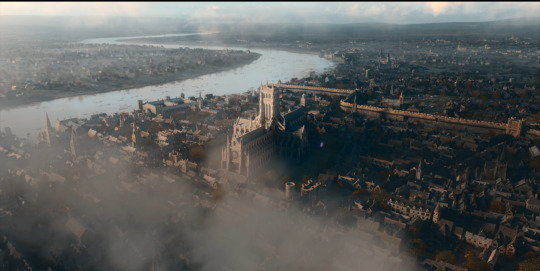
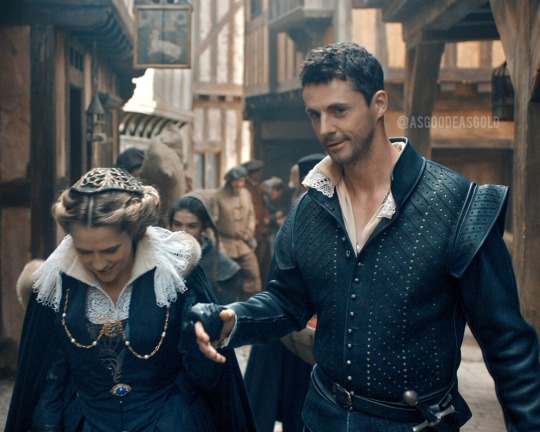
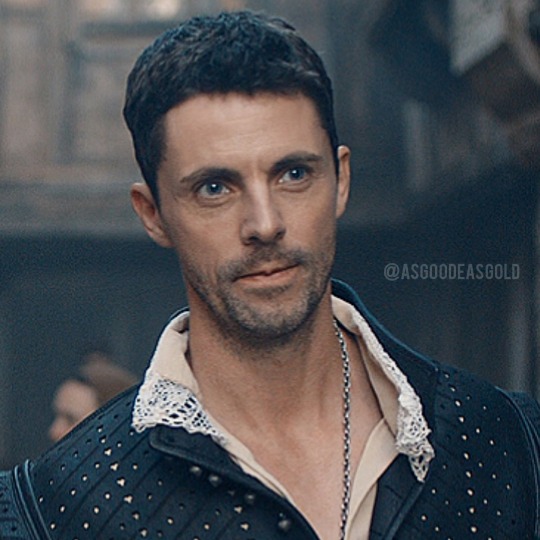
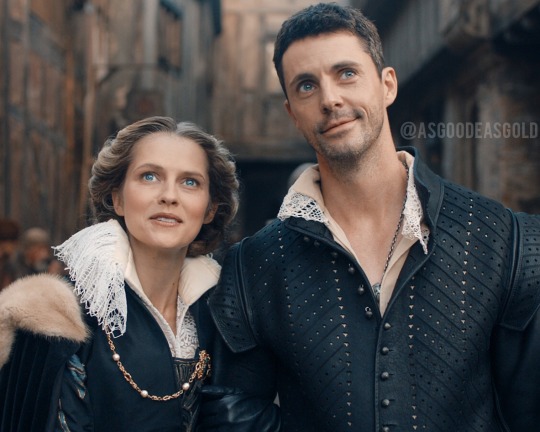

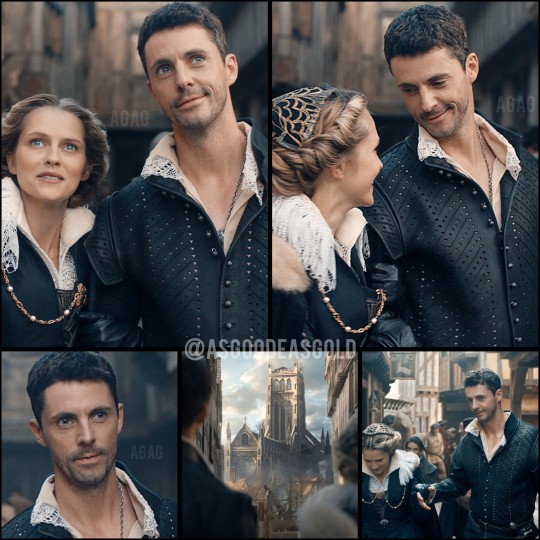
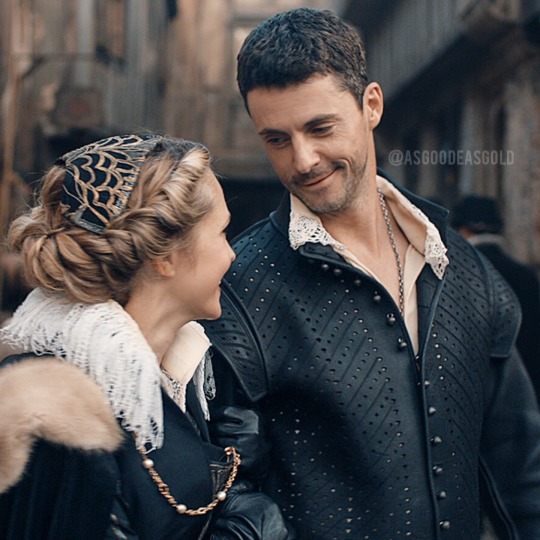
Shadow of Night Read Along Ch15
"I had never imagined that Old St Paul’s would be so big. I gave myself another pinch. I had been administering them since spotting the Tower (it, too, looked enormous without skyscrapers all around) and London Bridge (which functioned as a suspended shopping mall). Many sights and sounds had impressed me since our arrival in the past, but nothing had taken my breath away like my first glimpses of London."
Matthew and Diana are back in England, strutting their stuff in Blackfriars wearing doilies and doing touristy things.
And before they set off, Matthew gave Disna's attire a seal of approval now that she is no longer wearing his dead sister's (but not dead yet 🤯) old clothes.

📷 Sky/Bad Wolf A Discovery of Witches (2021) s2:01 my edits
#matthew goode#matthewgoode#teresa palmer#a discovery of witches#adow#adow s2#shadow of night#shadow of night read along#read along#all souls series#st paul's cathedral
42 notes
·
View notes
Text
Bad Thinking Diary real time read-along
Hye-Ra is an agent of chaos.

She will give good advice and splash in some bad to fuck over Yuna. A devil that feeds off drama.🤭But I love her for that. it's unfortunate that she is relegated to the "Friend that only exists to give relationship advice to the main couple."
But...but maybe she can be more 🥺
49 notes
·
View notes